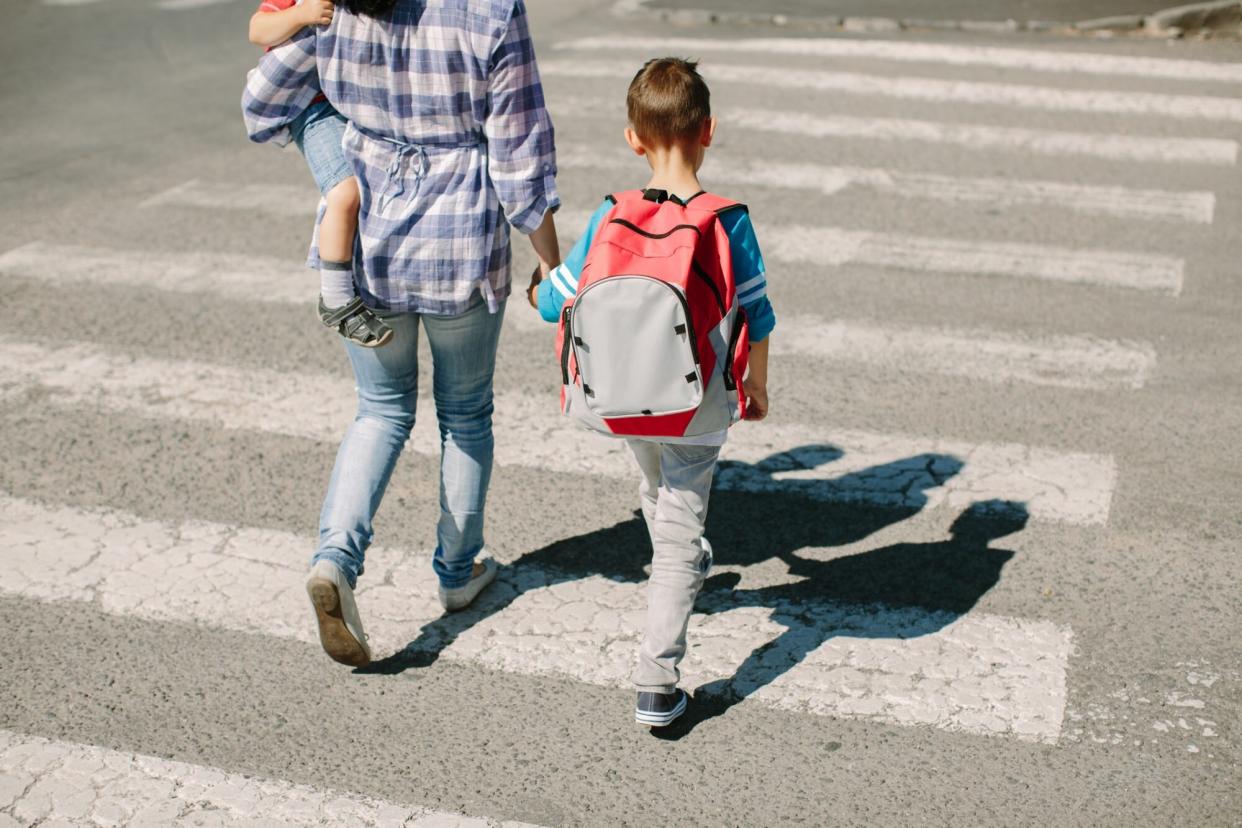Viral Teacher on TikTok Doles Out Advice on Empathetic Parenting

Getty Images.
We sometimes bemoan the amount of time kids (and adults) spend on social media. But during the pandemic, platforms like Facebook and TikTok became a lifeline for many parents as they tried to keep in touch with loved ones and or even learn to cook with restaurants shut down.
And in lieu of meetups with other parents, some caregivers have turned to social media for advice on raising compassionate, empathetic little ones.
RELATED: 20 Books That Encourage Empathy
Enter: Chazz Lewis, a Virginia-based parenting and education specialist who goes by @mrchazzmrchazz on TikTok. He tackled temper tantrums back in April.
"A lot of times, we'll talk about temper tantrums as a way to dismiss a child's feelings … as if their struggle of wanting something and not being about to have something and not being able to have it is not a real feeling," Lewis said.
But Lewis points out that a child being upset when they cannot have a toy is similar to an adult being bummed about not getting a promotion. He also says the environment around them or a feeling of rejection can cause a meltdown.
"These are all real feelings," Lewis reiterates. "We need to identify their needs. We need to help them meet their needs. We need to teach them how to identify their own needs and build skills … so they know how to navigate through a temper tantrum or meltdown."
One mom showed her appreciation in the comments section. "It's REALLY hard to navigate my son's emotions when I'm struggling to understand my own. My parents NEVER taught me how to process them, so I'm learning," she wrote.
Lewis also takes questions from parents. For example, in one video, someone asked him how to stop their child from running in the street. Before getting into practical advice, he suggested the parent flip their mindset.
"A lot of times, we ask ourselves, 'How can I get my child to stop doing X?'" Lewis said. "Really, we should be thinking about, 'How can I get my child to build Y?' 'How can I teach my child W?'"
So, instead of "How can I get my child to stop running in the street?" Lewis recommends parents ask themselves, "How do I teach my child safety?" He says singing songs, role-playing, games, prep, and practice can all help. Then, he breaks out into his own song about street safety to the tune of "If You're Happy and You Know It."
The commenters gave him a standing ovation.
"This is so perfect. Thank you for the truth nuggets," said one TikToker. "I sing this song to my two-year-old every time we cross the street now … he's gotten so much better," wrote one grateful parent.
These positive-parenting strategies can go a long way. Experts say that yelling and lecturing children makes them feel threatened, and it's hard to learn right from wrong when you're scared. But positive discipline builds trust and encourages positive behavior through love, respect, and kindness. (It also lays the foundation for higher-stakes issues later, such as alcohol use.)
Here are a few other expert-backed tips:
Model the behavior you want to see in your kids. Ensure you're kind and compassionate towards others. If your child sees you treating others the way you want to be treated, they'll likely follow suit.
Consistency is key. It's hard to follow guidelines if they are constantly changing. Set ground rules (such as no crossing the street without an adult) and stick to them.
Remain calm. Parenting is stressful, and seeing your child bite someone or dash into a parking lot towards the store can elicit an emotional reaction. Try to take a breath and remain calm (but firm) in these situations so that you get your point across without scaring your child.
Avoid lectures. Your child will probably tune you out if you wag your finger at them saying things like "I can't let you bite your sister" or "we don't run in the street." Instead, say something like: "Hold mommy's hand instead, and we'll cross together" to get the point across in a non-lecturing way.

